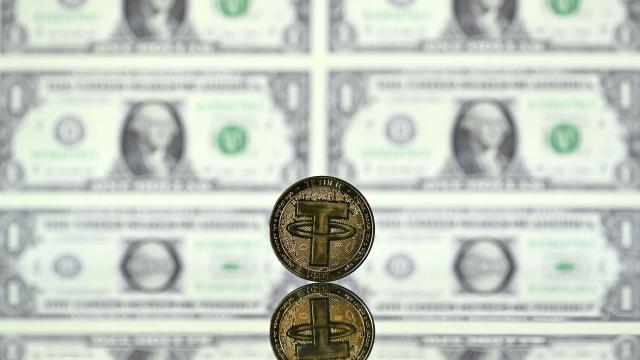The Japanese are stepping out in front of the international crowd of hungry crypto-curtailing regulators, becoming the first nation to truly clarify the legal status of stablecoins and setting a precedent for more regulations on the largely-unregulated crypto industry.
Bloomberg and the Financial Times reported Japan’s new law passed by the upper house of parliament Friday essentially links this kind of crypto to real-world currency — in this case the yen or any other legal tender — mandating that people have rights to redeem those tokens “at face value.” Though crypto exchanges in Japan don’t list stablecoins, the law effectively means only licensed banks and other registered financial institutions can issue stablecoins. The law will take effect in a year’s time.
What isn’t clear yet however is how this will impact existing overseas issuers like Tether, according to Bloomberg. The law also does not specifically mention algorithmic stablecoins like the failed TerraUSD, whose price crashed last month after it became depegged from the U.S. dollar, causing a sharp selloff. There has been a wave of controversy surrounding the fall of Terra and Luna. A report released Thursday by Terra backers Jump Crypto, the crypto arm of investment firm Jump Capital, shows based on recorded blockchain transactions that big investors with several million UST each liquidated their stocks early in the depegging process, driving the price ever-downward and leaving smaller holders with practically nothing.
Law enforcement, particularly South Korean financial investigators, are launching investigations against Terra founder Do Kwon, and other past holders are trying to sue. That such an unregulated ecosystem was damaged by the whims of big investors has put the onus on national regulators to monitor the health of stablecoins and protect small holders. At the same time, it does throw a pie in the face of those who’ve evangelized decentralized finance. Some of the country’s biggest firms and banks are already planning to get ahead in this new regulated market. Mitsubishi UFJ trust revealed it wanted its own stablecoin back in February. Traditional crypto companies like FTX are trying to drag the worlds of crypto and stock trading into one place.
This law has been in the works for over five years, according to the Financial Times. It had been first prepared by the country’s Financial Services Agency and was going through Japan’s House of Representatives in March.
The collapse of the Terra stablecoin in May seems to have electrified efforts to regulate cryptocurrencies. The U.K. is currently considering ways to rein in stablecoins. The Biden administration had previously proposed laws like Japan’s that would require stablecoins to be issued by federally insured banks. Other lawmakers have proposed their own regulatory framework that would allow the federal government to create licenses specifically to stablecoin issuers. U.S. Treasury Secretary Janet Yellen had discussed regulations after the early May crypto crash.
